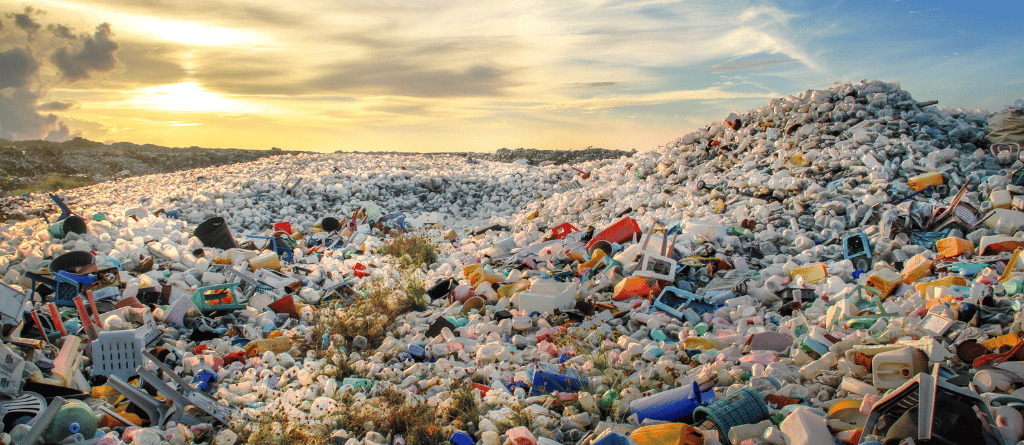In 2025 and beyond, the one-size-fits-all approach will make way for personalised strategies that resonate with employees, align with their values, and foster a sense of shared purpose. One such strategy is promoting sustainability in your workplace.
At Jump, we know that organisations that prioritise sustainability at the workplace will attract, retain and get better performance from their employees. In fact, a recent Deloitte survey found that over forty percent of Gen Z and millennials are willing to switch jobs over climate change.
However, too often interventions are simplistic & minimalist, expecting to take staff on a sustainability journey without communicating effectively the goals, aims and behaviours needed.
In this evolving landscape of workplace sustainability, we are already seeing an increased level of scrutiny and scepticism towards organisations that simply say and don’t do when it comes to their work towards the 17 UN sustainable development goals. The legal risks of greenwashing are very real, as reported in several articles including this piece from Bloomberg Law.
Industry leaders that want to attract and keep talent, increase competitive edge and save costs will continue to shift sustainability from being just a page in the Annual Report to becoming a core value and way by which their employees work and live. And to do that, you need to get personal.
“We don’t just recognise the need to get personal, we are championing it.”
Josh Cleall – Jump CEO
At Jump, we don’t just recognise the need to get personal, we are championing it. For the last ten years, we have been developing features and programmes that aim to connect with individuals on a deeper level, to drive meaningful change.
Here’s how I feel organisations will continue to get a bit more personal when it
comes to their at-work sustainability strategies in 2024 and beyond:
Flexible Sustainability Initiatives
Organisations will continue to move beyond rigid sustainability programs and allow for flexibility in how employees contribute. This can involve giving employees the autonomy to choose from a menu of sustainability initiatives or allowing them to propose and lead their own projects. Flexibility ensures that employees can align their contributions with their passions and strengths.
Personalised rewards
Acknowledging individual efforts is crucial in fostering a culture of sustainability. Much like we have seen the evolution of employee-based charity and good cause initiatives evolve, organisations will start to implement more and more personalised recognition and rewards systems that celebrate the unique contributions of each employee and team.
Cross team / department engagement
People work with people – they share ideas, celebrate one another, and a bit of friendly banter and competition can go a long way to foster better employee engagement. Organisations that tap into internal team and cross team comms initiatives such as our latest activity feed feature have the opportunity for sustainability to go from being an initiative to part of the work culture.
Support for Personal Sustainability Practices
Employees have diverse lifestyles and practices outside of work. Organisations that recognise this will extend support for personal sustainability efforts. This could involve providing resources and guidance on sustainable living practices at home, encouraging eco-friendly habits, and creating a community where employees can share personal sustainability tips and experiences.
Customised Training and Education
Employees have different levels of understanding and awareness regarding sustainability. More and more organisations will adopt personalised training programs that cater to diverse learning styles. This will ensure that each employee gains a comprehensive understanding of the organisation’s sustainability goals and their role in achieving them.
Wellness and Sustainability Integration
Recognizing the interconnectedness of personal well-being and sustainability, organisations will integrate wellness programs with sustainability initiatives. Personalised wellness plans, such as fitness challenges, mental health support, and stress management activities, will be intertwined with sustainability efforts to create a holistic approach that resonates with employees on a personal level.
Technology for Personal Engagement
A subject close to my heart! Organisations that start to look at leveraging technology such as ours to deliver all of the above will ensure that employees stay informed and connected with the organisation’s sustainability journey in a way that aligns with their interests.
In conclusion, the future of at-work sustainability demands a personal touch. Organisations that tailor their strategies to the unique needs and aspirations of their employees will not only enhance their sustainability impact but also cultivate a culture of shared responsibility and commitment.
As workplaces become more personal in their sustainability approach,
the potential for meaningful, positive change both within and outside the
organisation will undoubtedly grow.
If you’re interested in discussing this, and having a demo of our platform and how we work, please get in touch with our team by visiting https://teamjump.co.uk/demorequest.









